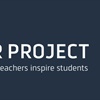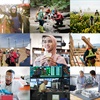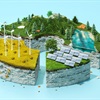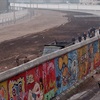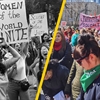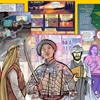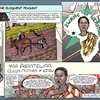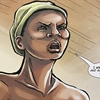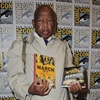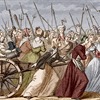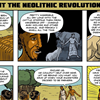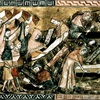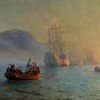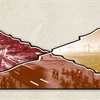- American history
- announcements
- BHP
- Big Questions
- Big Skills
- causation
- claim testing
- Climate Change
- Climate Project
- Community
- Community Highlights
- Course updates
- current events
- Getting Started
- Interdisciplinarity
- OER Project
- Project X
- Reading
- TaaD with Ian Usher
- teacher resources
- teacher tips
- Teaching at a Distance
- WHP
- WHP AP
- Writing
 |
Written by educators for educators, the OER Project blog holds a treasure trove of teaching materials, classroom insights, teaching strategies and the latest research to strengthen your practice. |
-
Exciting new updates
Fellow educators, Having been a part of the OER Project as both a teacher and staff member, I know firsthand how powerful the collaboration between classroom educators and OER Project materials can be for student learning. When I took the helm as dir... -
Climate Project: A new path forward in climate education
By the OER Project Team Climate change will affect every part of our lives, from health care and food systems to business and governance. An understanding of climate change and how we can respond to it is critical knowledge for the next generation of... -
Five takeaways from Climate Project teachers
By Molly Sinnott When you’re looking for a new coffee maker, you look to see what other consumers have said about the product, right? Is it intuitive to use? Is it built to last? And perhaps most importantly, does it make good coffee? So ... -
Teaching climate change? Parents and communities support you!
By Dr. Deb L. Morrison Do you want to teach about climate change but worry about how parents may react? You’re not alone. Research tells us that approximately 30% of all teachers are concerned that parents may complain if thei... -
How can we help students translate climate change data and evidence into action?
By Bridgette Byrd O’Connor We live in a world that bombards us with data. News organizations include charts and graphs as evidence to support their arguments. Politicians haul out poster-size charts when they debate bills. You can even si... -
Students can build community while fighting climate change
By Trevor Getz My favorite teacher in high school wasn’t actually my teacher. That is to say, when it came time for me to take AP® US history, I was assigned the boring instructor whose students always passed the test, rather than the guita... -
Preparing students for climate-focused careers!
By Jodi Pincus and Trevor Getz I don’t remember learning much about different occupations in high school. I also don’t remember learning career-readiness skills like résumé writing, job-hunting, or interview techniques. Mayb... -
Climate optimism: A key to confronting climate change?
By Trevor Getz, OER Project TeamSan Francisco, USA We’re publishing this blog as part of an exciting announcement: a fully remodeled Climate Project is coming your way this April! We’re previewing the launch with a sneak peek at some of o... -
The Cold War ended in 1991…right?
By Bennett Sherry and Trevor Getz, OER Project Team The United States funds proxy wars against authoritarian and communist regimes. A Russian leader threatens nuclear retaliation. The US, Russia, and China build elaborate alliance systems agains... -
Top 5 things to keep in mind when curating supplementary curricular materials
By Rachel Phillips, Senior Measurement & Learning Lead, OER Project Research indicates that teachers are supplementing their primary curricula more than ever before. Eager to understand this growing trend in the profession, OER Project commi... -
"Nevertheless, she persisted”: A celebration of women’s history
By Bridgette Byrd O’Connor, OER Project Team
Louisiana, USASince 1987, March has been celebrated as National Women’s History Month. In recognition, OER Project’s new Women in History: Political and Scientific Achievements hub page brings together a strong collection of lessons with articles, videos, and activities to inspire your students. But women’s history wasn’t always as widely recognized as it…
-
History Stories and Comics
By Rachel PhillipsSenior Measurement & Learning Lead, OER Project Introduction Narratives are the heart of history. They are critical for history education because stories are one of the most powerful ways people learn. Stories build connections ... -
Graphic biographies: Bringing Black individuals into the world history classroom
By Trevor Getz, OER Project Team
San Francisco, USAThis is the final in a three-part series on the use of comics in the social studies classroom, focusing largely on Black creators and subjects, both in recognition of Black History Month and also to acknowledge the importance of celebrating diverse voices year-round. Originally published in February 2021, we think it makes for a great introduction to the genre. Click …
-
How I learned to stop worrying and love nonfiction comics, and why you should too
By Trevor Getz, OER Project Team
San Francisco, USAThis is the second in a three-part series on the use of comics in the social studies classroom, focusing largely on Black creators and subjects, both in recognition of Black History Month and also to acknowledge the importance of celebrating diverse voices year-round. Originally published in February 2021, we think it makes for a great introduction to the genre. Click …
-
A serious history of Black comics creators
By Trevor Getz, OER Project Team
San Francisco, USAThis is the first in a three-part series on the use of comics in the social studies classroom, focusing largely on Black creators and subjects, both in recognition of Black History Month and also to acknowledge the importance of celebrating diverse voices year-round. Originally published in February 2021, we think it makes for a great introduction to the genre. Click h…
-
Revolutionary Women: Little Tweaks Make a Perfect Fit
By Sharon Cohen, WHP Teacher
Maryland, USAIn the eighteenth and nineteenth centuries, all kinds of women became active in the fight for change. WHP’s Revolutionary Women activity gives students a chance to engage with one of these revolutionaries and explore how they pushed the boundaries of the status quo.
As part of our new collection of lessons and resources on the Age of Revolutions, we’re re-surfacing some…
-
“Yes, Virginia, there is a Santa Claus… and you helped create him.”
By Trevor Getz
San Francisco, USAEditor's Note: We’re bringing you some historical holiday cheer and re-publishing this blog post alongside a new lesson plan on teaching change and continuity over time (CCOT). Visit our one-stop shop for all things CCOT to find an introductory lesson, a collection of teaching tools, advice from educators, and even a downloadable bookmark to help your students as they practice…
-
Foraging or farming? Two visual answers to an age-old question.
By Trevor Getz, OER Project Team
San Francisco, USAEditor's Note: Farming vs. foraging—the debate lives on! The Agricultural (or Neolithic) Revolution marked a turning point in the history of humanity and shaped societies in every region of the world. And like most things in history, we can’t boil down this monumental event to simply “good” or “bad.” We’ve pulled together
… -
How long will it (did it) last? Redefining the Black Death
By Monica H. Green, Guest Expert Editor's note: We’re dusting off this "vintage" blog as part of our new collection of Sourcing lesson plans. This post explores some of the essential documents regarding the Black Death, and it makes a great pre... -
What are the positive and negative impacts of interconnection?
By Bridgette Byrd O’Connor The Columbian Exchange was a monumental turning point in our history, so it’s no surprise that it’s likely a topic that appears somewhere in your course plan, whether you teach world or American history an... -
2023-24 OER Project course updates
By the OER Project Team Find direct links to ALL the updates described in the blog below with this handy 2023-24 OER Project Course Updates chart. “Butter,” “Old Town Road,” “Bad Blood,” “Call Me... -
How did we get here? Using the past to prepare for the future
The world has never been more wondrous or complex—or more fragile. Today's students of history need guidance to understand how climate, economics, and politics shape our world. These resources will help! www.youtube.com/watch--> Is the wo... -
For better and for worse: Is everything awesome?
By Bennett Sherry Everything is awful When we’re asked, “Are things getting better?” a pessimistic quip is often our default response. Many people think things are even getting worse. Hans Rosling, the medical doctor and educator wh... -
Evidence of collective learning, right here in the OER Project teacher community
By Molly Sinnott Collective learning is a focal point in Big History and World History Project courses, in large part because it highlights for students our unique human ability to share, store, and pass on information. And it’s not difficult t... -
Looking to the future to learn more about our cosmic past
By Bridgette Byrd O’Connor The end of the school year is approaching at the speed of light. What better way to wrap up students’ learning voyage than by looking to the future to understand the past? That might seem a little weird. After a...
